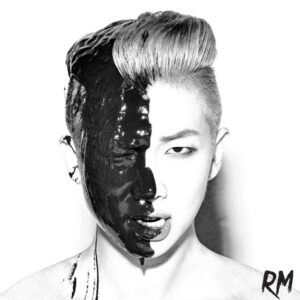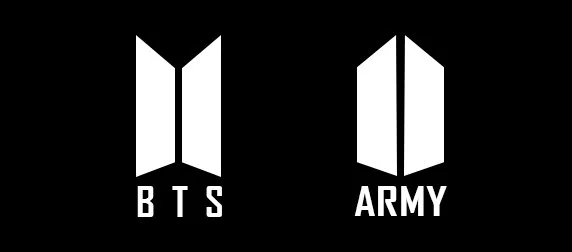Among my middle-aged peers, I stand out as somewhat unique: I stay closely attuned to youth culture, from music and fashion to their evolving slang. Perhaps this comes naturally because I teach and counsel young people, and I also try to make it my mission to listen and understand what excites and inspires them. Recognizing that I’m genuinely interested in their world, my students are not shy about sharing their passions with me.
When BTS first appeared on the Korean music scene, none of my students seemed enthusiastic, as no one mentioned them to me. I first heard about BTS through a news article that highlighted Bang Si-hyuk, a respected songwriter and producer, formerly associated with JYP Entertainment, who had started his own label, Big Hit Entertainment. But the group’s name—방탄소년단 (Bangtan Sonyeondan) (In English, Bulletproof Boy Scouts)—struck me as peculiar, if not a bit puzzling. I remember that the public reaction at the time was quite harsh, with many mocking it as perhaps the worst idol group name ever and criticizing the members’ looks as insufficient for surviving the cutthroat K-pop industry. Soon enough, I forgot about the group altogether.
Two years later, in 2015, however, two students, early ARMY members, introduced me to BTS during a classroom break. They passionately praised the group’s synchronized choreography and lyrics that criticized Korea’s ruthless educational system and societal pressures. Surprised that BTS had not already faded away in the harsh idol landscape, I listened as my students played the song “뱁새 (Baep-sae) (A Have-not),” known in English as “Silver Spoon.” I was taken aback by the lyrics, accustomed as I was to idol songs filled mostly with superficial themes like romance and heartbreak.
Baepsae audio
Baepsae live
It reminded me of old days, artists like Seo Taiji and H.O.T, who had challenged social norms and educational pressures in Korea. Seo Taiji’s 1994 heavy metal song, “Classroom Idea,” had boldly confronted the Korean educational system, which places intense pressure on students, leading to its ban from public broadcast. It felt as though BTS had picked up that torch twenty years later, with the added courage of writing their own lyrics, rare for idol groups.
Seo Taiji’s original album version
BTS’s live cover version
H.O.T’s We Are the Future. It’s a song of rebellion but also hope, that despite facing a harsh and competitive society, dealing with immense pressure from the educational system, young people should not give up or lose themselves in despair, that the youth are the true future, and change will come through their dreams and determination. BTW, in terms of popularity, as well as singing and peerless dancing skills, H.O.T was the BTS of the 1990s.
Impressed, I began exploring BTS’s music videos and live performances. The song “쩔어 (Dope)” particularly captivated me. Its playful yet pointed commentary about societal inequalities, clever wordplay, and flawless choreography was exhilarating. It was then that I understood why BTS was renowned for their “칼군무 (kahl-goon-moo) (knife-like choreography),” movements so synchronized and precise, they seemed measured to perfection.
Dope MV (one of my favorite BTS MVs)
BTS Kalgunmu
Yet, it was RM’s mixtape, released later that same year, that turned me from an intrigued listener into a lifelong ARMY. To me, his mixtape was not just an album; it was an authentic, courageous revelation of his innermost struggles. RM transformed personal anxieties, confusion, and loneliness into deeply poetic and reflective music. His lyrics were intense and unfiltered, at times chillingly bleak, and explored life’s complexities and darker realities.

In my favorite track, “Life,” RM contemplates the profound difference between merely existing and truly living, questioning whether happiness lies in pursuing dreams or simply enduring the quiet, ordinary moments that collectively define our lives. His restrained yet emotional delivery resonated with me, capturing the beautiful sorrow inherent in life’s unanswered questions. It was astonishing that someone so young could produce such a mature, intricate, and artistically bold work, rich with inventive sounds and evocative lyrics.
From then on, my admiration for BTS only deepened as each member consistently delivered work marked by excellence and creativity. This admiration inspired me to create my first social media account on Twitter in 2017, dedicated to analyzing and translating BTS songs for ARMYs worldwide. It’s a passion I will now continue here, on this website.
Guys, I’d really love to hear how you became an ARMY. Once you register and become a member, you’ll be able to post on the Members Forum boards, including one dedicated entirely to all things BTS. I’m hoping the BTS forum becomes a lively space where we can chat, debate, and even passionately argue about BTS, without worrying about immature or disruptive behavior ruining the fun. As the honcho of this little online world, I’ll do my best to keep it a safe, welcoming, and enjoyable space for everyone. I can’t wait to read your stories! 아포방포!

